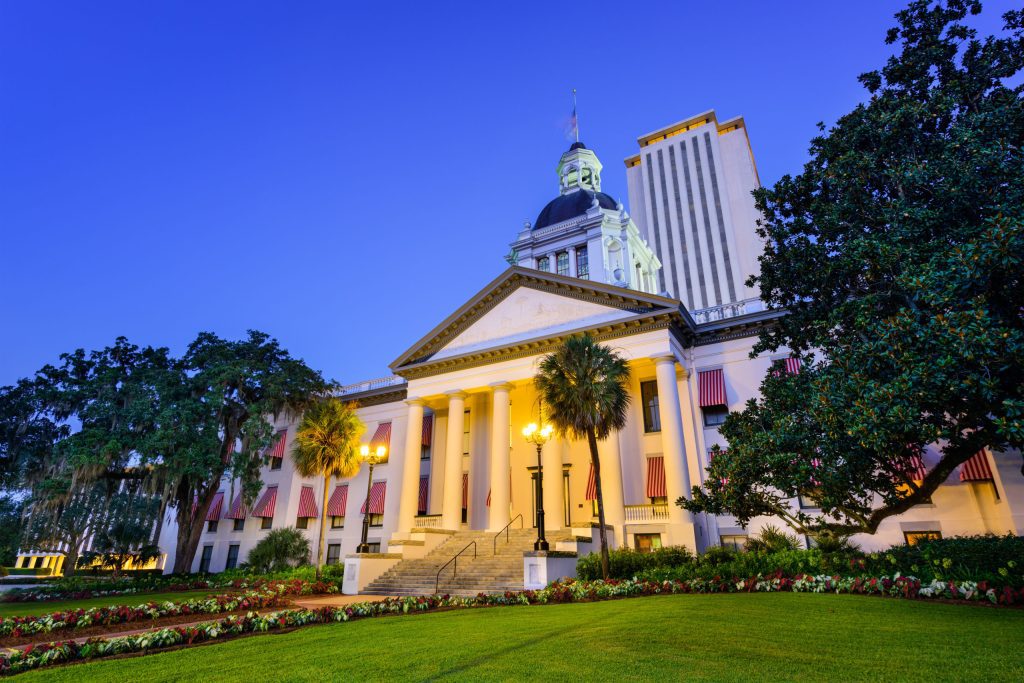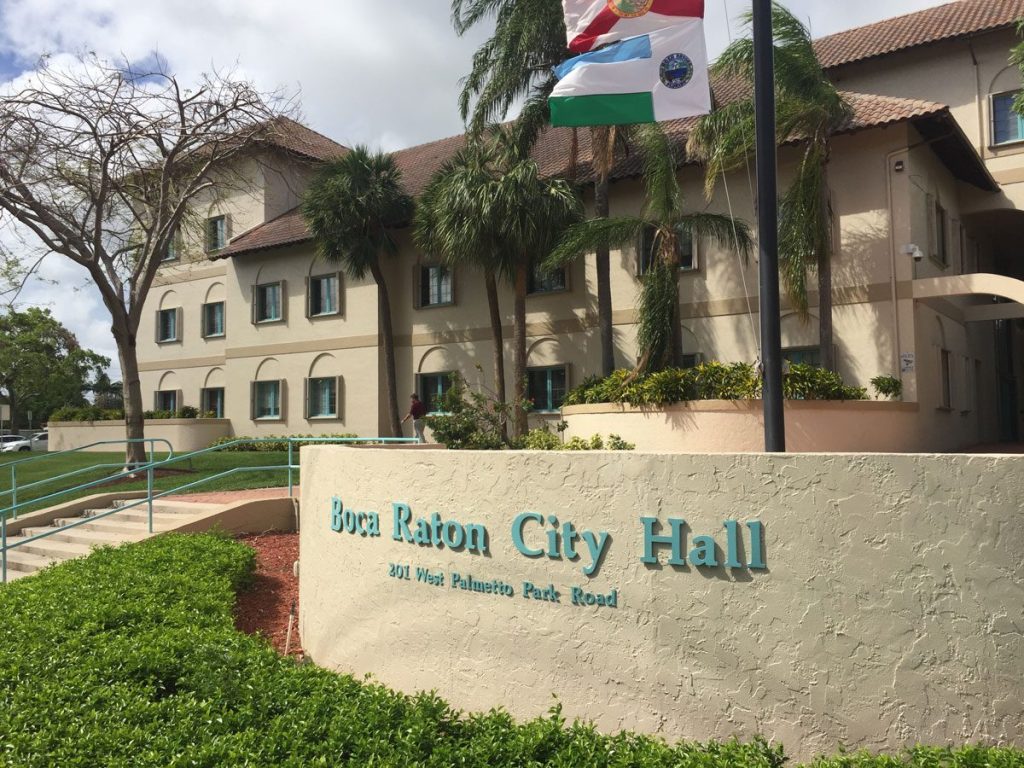After taking a mulligan two years ago, the Delray Beach City Commission gets another chance to tee up the long-awaited renovation of the public golf course.
At today’s meeting, commissioners will hear a presentation from the city’s consultant. The firm proposes a “sustainable” financial plan to a new layout, which the city would finance with a revenue bond based on greens fees and other income.
According to the consultant, the course could reopen in October 2026 after a $27 million makeover of the tee boxes, fairways, greens and clubhouse. As now, a private company would manage the course.
Three years ago, a commission that disagreed on almost every big issue unanimously agreed to seek a public-private partnership to pay for the long-delayed renovation. In exchange for developing a small portion of the land, a private firm would pay for the new links. As now, the commission had decided that property tax money would not pay for the renovation.
Six entities submitted proposals. But a group of regular golfers and historic preservation advocates opposed the partnership. Famed designer Donald Ross created the course in the 1920s when it was only nine holes. Though bidders said they would preserve Ross’ design on those holes, commissioners balked. Opponents also worried that fees would rise too much.
The consultant cites factors in favor of Delray Beach creating this upgraded amenity. Of the 29 area courses the firm studied, Delray Beach ranked 11th in rounds played. The course has a loyal following, including leagues. The downsides? The course is in terrible condition, and the clubhouse needs work to become a revenue-producing venue.
Under the consultant’s proposal, peak rates—November through April—would be $80 for residents and $105 for non-residents. Off-peak would be $39 and $47. Residents could buy permits for $67 and get cheaper rates. Rates would rise by five percent a year until 2031, then drop to two percent annually.
To encourage play, rates can’t be too high. To finance the bonds, they can’t be too low. The consultant has tried to strike that balance. If this plan doesn’t appeal to the commission, one wonders which plan will.
Delray to decide how to spend funds from PFA lawsuit settlement
 Photo by Steve Johnson via Pexels
Photo by Steve Johnson via Pexels
Also on the agenda for today’s commission meeting is a decision on how to spend money that Delray Beach will receive from the national lawsuit against polyfluoroalkyl chemicals, known as PFAs.
These chemicals, which are found in many everyday household products, have been linked to serious illnesses. Delray Beach expects to receive roughly $15 million in settlement money over the next seven years.
In a letter to City Manager Terrence Moore, Utilities Director Hassan Hadjimiry asks that the commission designate the money strictly for the new water plant. Coincidentally, another item on today’s agenda is pro forma approval of the bonds to finance the work. The plan will cost up to $160 million. Another $30 million will go for deep-injection wells at the plant to dispose of waste.
I’ve heard no opposition to this use of the money. Delray Beach is designing the plant to meet the higher—though watered-down under the Trump administration—standards for filtering PFAs from public water supplies.
Delray to discuss joining lawsuit against Florida Legislature over Home Rule
 Florida State Capitol
Florida State Capitol
Another item on today’s agenda asks the commission to have Delray Beach join a lawsuit against what critics call an egregious example of the Legislature infringing on the right of local governments to set their own rules.
The issue this time is Senate Bill 180, which became law this year. Critics contend that the bill, filed under the generic label “Emergencies,” would prevent local governments throughout the state from responding to hurricanes with policies that make areas less prone to storm damage.
According to the staff analysis, the bill would apply to any city or county covered in the federal disaster declaration for last year’s three hurricanes—Debby, Helene and Milton. The legislation thus would apply to every part of the state.
1000 Friends of Florida is the state’s leading growth-management advocacy organization. As the group points out, SB 180 makes any local comprehensive plan or code change adopted after the storms that a party considers “more restrictive or burdensome” subject to a lawsuit. In addition, local governments can’t adopt any new changes until Oct. 1, 2027.
As 1000 Friends’ analysis states, “Residents, business owners and a broad array of entities are given rights to challenge such actions, whether or not they live or own land in the affected local government’s boundaries or are affected at all by the regulations they dislike and are entitled to attorney’s fees and costs if successful.”
According to 1000 Friends, many legislators may not have been aware of SB 180’s vast scope. The bill passed the House unanimously and the Senate with just one dissenting vote.
1000 Friends puts it this way: “This law is unworkable, confusing and overly restrictive. It ignores the reality that major economic and population shifts, new industries or practices, natural disasters and all manner of other situations change, sometimes suddenly, requiring communities to revise their planning and regulatory approaches. But this law ties the hands of local governments, prohibiting them from reacting to the real world —which is dynamic, not static.” It’s the development industry asking for free rein throughout Florida.
Investigation finds Delray Beach Fire Chief violated policy with surveillance camera
An investigation has determined that Delray Beach Fire Chief Ronald Martin violated policy by installing a surveillance camera in his office.
City Manager Terrence Moore said Martin should have obtained authorization before installing the device. Martin also did not tell those who were within range of the camera that the device was operating.
According to a statement from Moore, the investigation by the city’s labor and employee relations division “determined that the device was not connected to a recording subscription, and there is no evidence that it was used to record or store conversations or private interactions. The camera was limited to real-time motion alerts and was installed during a period of heightened concern regarding security and unauthorized access to the workspace.”
Moore added, “Chief Martin has been transparent about his reasons for installing the device, which included safeguarding sensitive personnel files, protecting city assets, and ensuring the security of his office.” As a department head, though, “Chief Martin is held to a high standard and is expected to model full compliance with city procedures. Appropriate corrective action is being taken to reinforce these expectations and ensure future adherence.” Martin “retains the city manager’s support.”
If Martin was sincere in his reasons for installing the camera, it makes you wonder about the level of mistrust and/or dysfunction within the department that Martin inherited from former Chief Keith Tomey. Moore fired Tomey in May 2024 for policy violations. Tomey challenged the firing. Though a judge last September refused to dismiss the case, court records show no action on the case since March.
Boca Raton to select new city manager today

By the end of the day, Boca Raton is scheduled to have its next city manager.
At 8:45 a.m., city council members will begin interviewing the five finalists to succeed George Brown. He retires in January. Of the seven original finalists, one took another job and a second dropped out.
In order of interviews, the finalists are: Jorge Camejo, one of Boca Raton’s four deputy city managers; Mark Sohaney, who until December was CEO of Joint Base Hickham-Pearl Harbor in Hawaii; Patrick Jordan, county administrator in Cass County, Mich.; James Zervis, another deputy city manager in Boca Raton; and Stan Morris, city manager for Sunny Isles Beach.
Boca Raton has not gone outside for a CEO in nearly four decades. I would not expect that trend to change.
The argument for Camejo is that his expertise is development—especially downtown development. The city’s top priority is redevelopment of the area around City Hall, though the plan faces a possible referendum. In addition, the city must plan for a future without the community redevelopment agency, which has overseen downtown since 1980.
The argument for Zervis is that his expertise is finance, as it was for Leif Ahnell. He was the manager for nearly a quarter-century before retiring at the end of 2023. Ahnell guided the city through the 2008-2010 financial crisis. The next potential crisis could come from Gov. Ron DeSantis’ wish to abolish the property tax, which is the main source of local government revenue.
Since the change of command at Pearl Harbor, Sohaney has been a finalist for two manager jobs in Florida—Palm Bay and Venice. Cass County has a population just half that of Boca Raton, and Jordan abruptly left another job in Michigan last year before returning. He has no experience in Florida.
In contrast, Morris has spent his entire career in Florida, starting in 1989 as a code inspector in Coral Gables. He has been the manager of Sunny Isles Beach since 2021. The town of about 23,000 north of Miami is known as Little Moscow because of all the Russian emigrees







